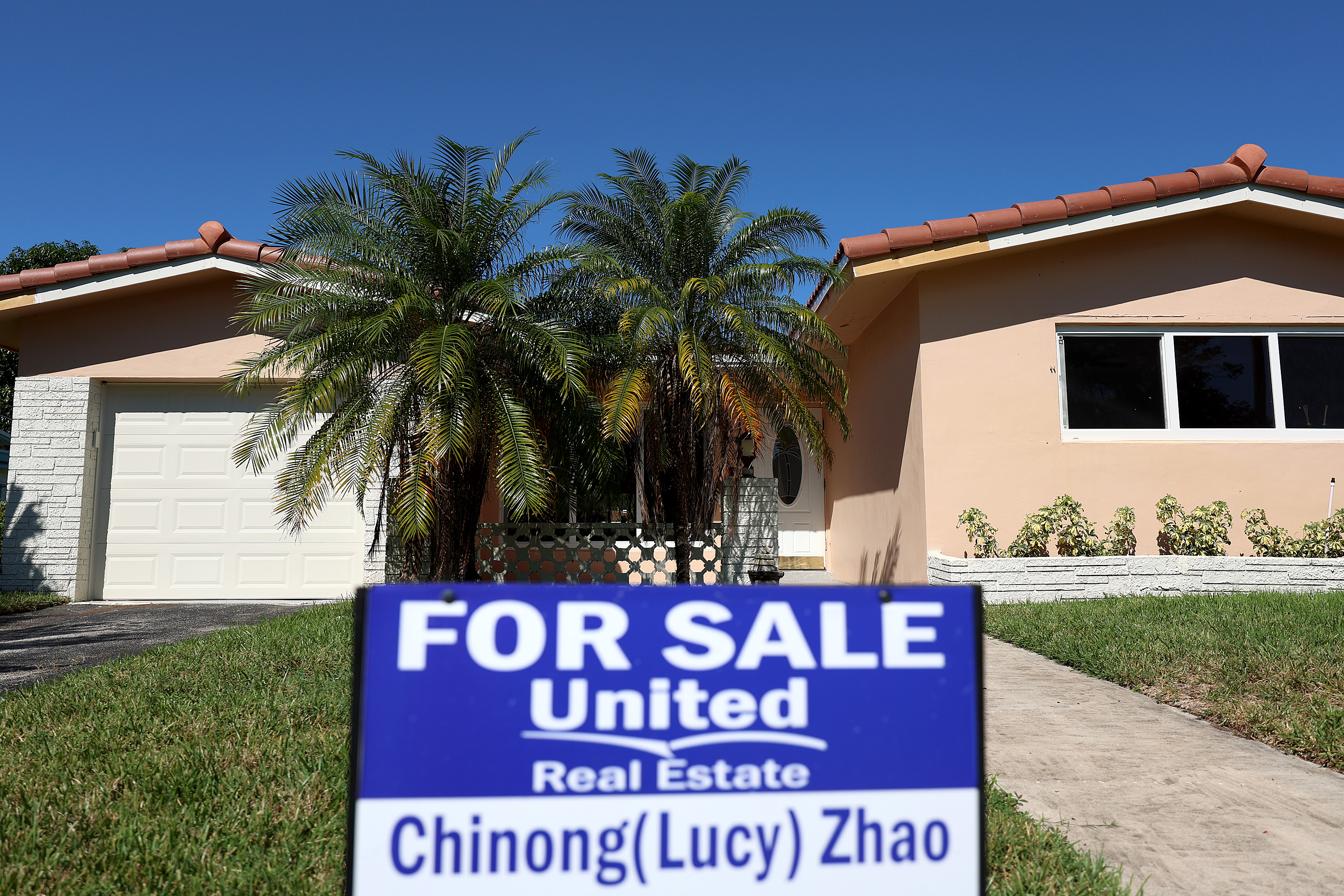Florida Housing Market Echoes ‘Great Recession’—Real Estate Analyst
Home sellers in Southwest Florida are slashing their asking prices at rates unseen since the years that followed the economic downturn of late 2007 to 2009, according to real estate professor Shelton Weeks.
“It’s probably been over a decade since we’ve seen a situation like this,” Weeks, who teaches at Florida Gulf Coast University, told Florida-based WINK News. “You know, you have to get back to the recovery days coming out of the Great Recession in terms of price discounts and stuff we’re seeing in the market.”
Newsweek contacted Weeks for comment by email on Wednesday morning.
Why It Matters
The Sunshine State’s housing market boomed during the pandemic, when an influx of out-of-state newcomers moved to many of its cities seeking good weather, more affordable housing and lower taxes.
In the past few years, Florida built the most new homes in the country to meet growing demand—but the end of the pandemic and a decline in remote working opportunities have led to a significant slowdown in in-migration—the process of people permanently relocating to a different area of the country they live in—to the state.
Growing inventory in the state is now meeting dwindling demand as many Floridians are struggling with rising homeowners association (HOA) fees, high property insurance premiums, the growing risk of natural disasters, and generally climbing homeownership costs.
What To Know
Florida ended January with the highest inventory of any month on record dating back to 2012, according to Redfin data, with 172,209 homes for sale. The following month, according to the real estate brokerage, there were even more homes on the market, for a total of 222,927—up 17.8 percent from a year earlier.
The number of homes sold in the state in the same month, at 25,201, was 10.1 percent lower than in February 2024. That is because, while buyers now have more inventory to choose from, they are still facing mortgage rates between 6 percent and 7 percent, as well as higher housing costs.
These dynamics are especially clear in Southwest Florida, where inventory is piling up, forcing sellers to slash prices and meet buyers where they are at.
In Tampa, 32.3 percent of homes on the market had price reductions in February, down 2.2 percent compared to a year earlier, according to Redfin, and the number of homes sold (428) was up 1.4 percent year-over-year. The median sale price of a home in the city was up 5.4 percent year-over-year, at $450,500.
In Cape Coral, 379 homes went under contract in February, down 14.4 percent from a year earlier, and 44.9 percent of for-sale homes—almost half—had price reductions, up 5.6 percent from a year earlier. The median sale price of a home was $390,000, down 2.5 percent from a year earlier.
Joe Raedle/Getty Images
In Fort Myers, only 112 homes were sold in February, down 24.8 percent from a year earlier, and 41.5 percent of all homes listed for sale in the city had a price reduction, up 0.6 percent year-over-year. The median sale price of a home was $382,500, down 1.3 percent from a year earlier.
In Naples, 95 homes sold last month, down 7.8 percent from a year earlier, and 38.7 percent of listed homes had their asking price slashed by sellers, up 4.9 percent year-over-year. Despite widespread cuts, the median sale price of a home in the city was still a staggering $1,200,000, up 43 percent from a year earlier.
Finally, in Punta Gorda 59 homes went under contract last month, up 1.7 percent from a year earlier, and 39.8 percent of homes listed for sale had a price reduction. The median sale price of a home is down 35.7 percent year-over-year, at $360,000.
What People Are Saying
Adam Bartomeo, owner of Bartomeo Realty, told Fox 4: “Now we have the highest inventory we ever had in Southwest Florida. […] Buyers are not in a rush. Until we get through some of this inventory, I’m foreseeing that we’re going to be decreasing in both rental prices and single family home sales until about the end of the year.”
Denny Grimes, president of Denny Grimes & Team at Keller Williams Realty, told Gulf Shore Business: “We’re actually now in a buyer’s market, and we’ve been in one since the fourth quarter of 2023. It kind of snuck up on us. We were praying for more inventory, and we have it right now. So, the market is resetting. And that’s the key to my message.”
Weeks said: “It’s the right time to buy, given all the other factors that have to go into that decision; there could be some good deals out there.”
What Happens Next
There is so much inventory in Florida that there is no doubt that much of the state has turned into a buyer’s market—meaning that those looking to purchase a property now have the upper hand, having more options available just in time for spring selling season.
But buyers are still being bogged down by elevated mortgage rates and historically high home prices, and their reluctance to engage in the market is forcing sellers to slash their asking prices.
Increasingly, homebuilders in Florida are offering incentives to potential buyers trying to offload their properties. Real estate analyst Nick Gerli, CEO of Reventure App, recently said that the market is “beginning to look a lot like 2008,” at least for homebuilders.
However, many experts—including Gerli—think that Florida won’t be facing a housing crash this year, but simply a correction from its excessive overheating over the past few years.


